 User complaints have been registered about a threat dubbed VirTool:Win32/Obfuscator.XX. The VirTool:Win32/Obfuscator.XX may be a false positive triggered by pirated software, or could be employed by malware. To determine the origin of the threat, a full system scan may be required.
User complaints have been registered about a threat dubbed VirTool:Win32/Obfuscator.XX. The VirTool:Win32/Obfuscator.XX may be a false positive triggered by pirated software, or could be employed by malware. To determine the origin of the threat, a full system scan may be required.
Update October 2019. According to user reports, VirTool:Win32/Obfuscator.XX continues to be triggering security software alarms. This means that the threat related to VirTool:Win32/Obfuscator.XX continues to persist.
Some users have tried to delete it but unsuccessfully. Due to the threat’s behavior, people may refer to it as a virus.

Threat Summary
| Name | VirTool:Win32/Obfuscator.XX |
| Type | False Positive, Trojan |
| Short Description | The detection may be generic or malware-related. |
| Symptoms | System alerts about detected issues. |
| Distribution Method | Unsafe browsing, hacked websites, pirated software |
| Detection Tool |
See If Your System Has Been Affected by malware
Download
Malware Removal Tool
|
| User Experience | Join Our Forum to Discuss VirTool:Win32/Obfuscator.XX. |

Is VirTool:Win32/Obfuscator.XX Dangerous?
According to researchers, VirTool:Win32/Obfuscator.XX is similar to VirTool:Win32/Obfuscator.XZ. It is a generic detection employed by Windows Defender and Microsoft Security Essentials. Other AV products may also detect the threat under that name. Research indicates that the tool has Trojan capabilities and may be deployed to hide the purpose of malware. As a result, your AV solution will not detect it and your system could be affected.
Security specialists warn that due to the generic characteristics of the detection, it could be about various pieces of malicious software. In other words, this detection can vary from one instance to another.
As already mentioned, due to the generic nature of the tool, its installation method can be different in different situations. The detection may often install inself by copying its executable files to the Windows or Windows system folders. Then, it can modify the registry to run this file every time the system is booted.
According to research, VirTool:Win32/Obfuscator.XX may be able to modify the following subkey:
HKEY_LOCAL_MACHINE\Software\Microsoft\Windows\CurrentVersion\Run
Also, note that the detection may be designed to connect to a remote host. Malicious software employs remote access:
- To receive configuration and information.
- To download and execute arbitrary files such as updates or additional malware.
- To receive instructions from remote attackers.
- To upload data obtained from the infected computer.

Is VirTool:Win32/Obfuscator.XX Detection a False Positive? How Can I Remove VirTool:Win32/Obfuscator.XX?
Even though the tool is often associated with malware, it is not necessarily true in all occasions. In other words, VirTool:Win32/Obfuscator.XX detections may not be malicious and can be false positives. However, to determine that, using professional software to scan the system is often required.
Preparation before removing VirTool:Win32/Obfuscator.XX.
Before starting the actual removal process, we recommend that you do the following preparation steps.
- Make sure you have these instructions always open and in front of your eyes.
- Do a backup of all of your files, even if they could be damaged. You should back up your data with a cloud backup solution and insure your files against any type of loss, even from the most severe threats.
- Be patient as this could take a while.
- Scan for Malware
- Fix Registries
- Remove Virus Files
Step 1: Scan for VirTool:Win32/Obfuscator.XX with SpyHunter Anti-Malware Tool
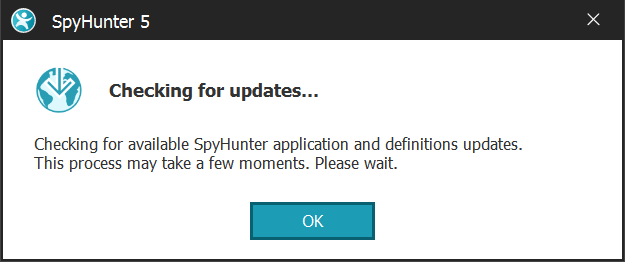
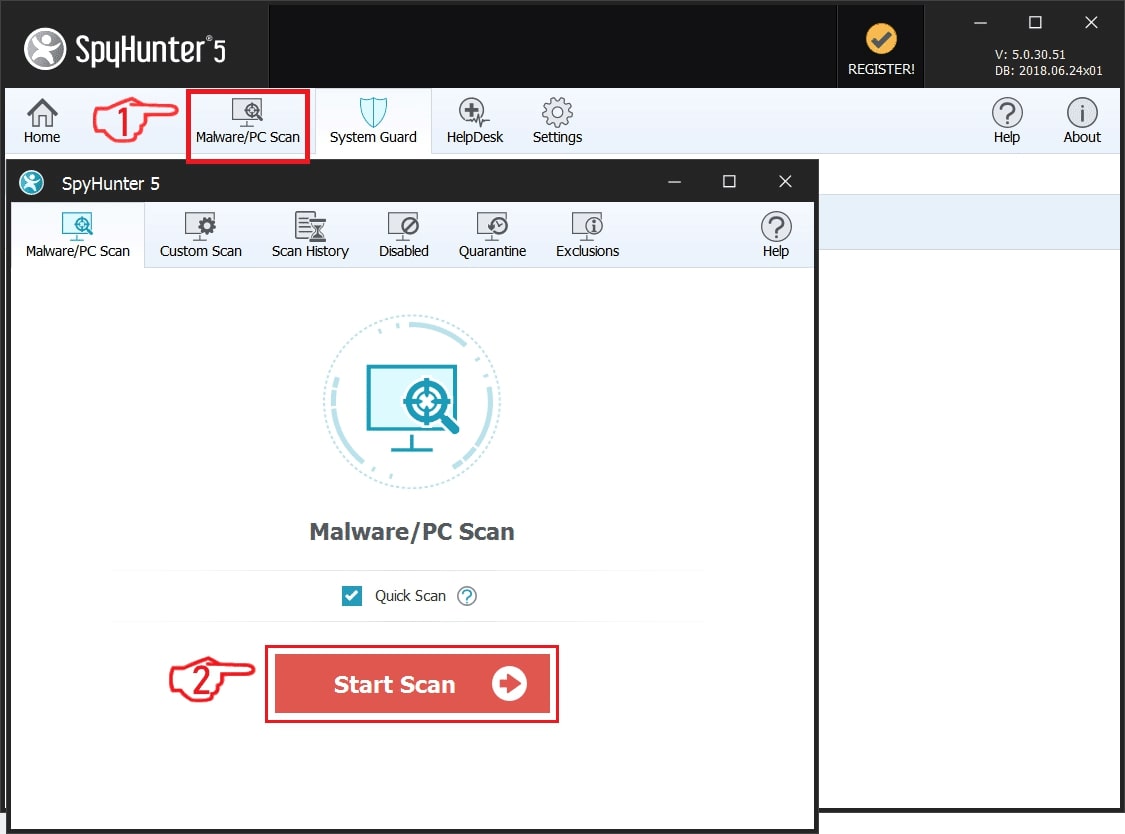
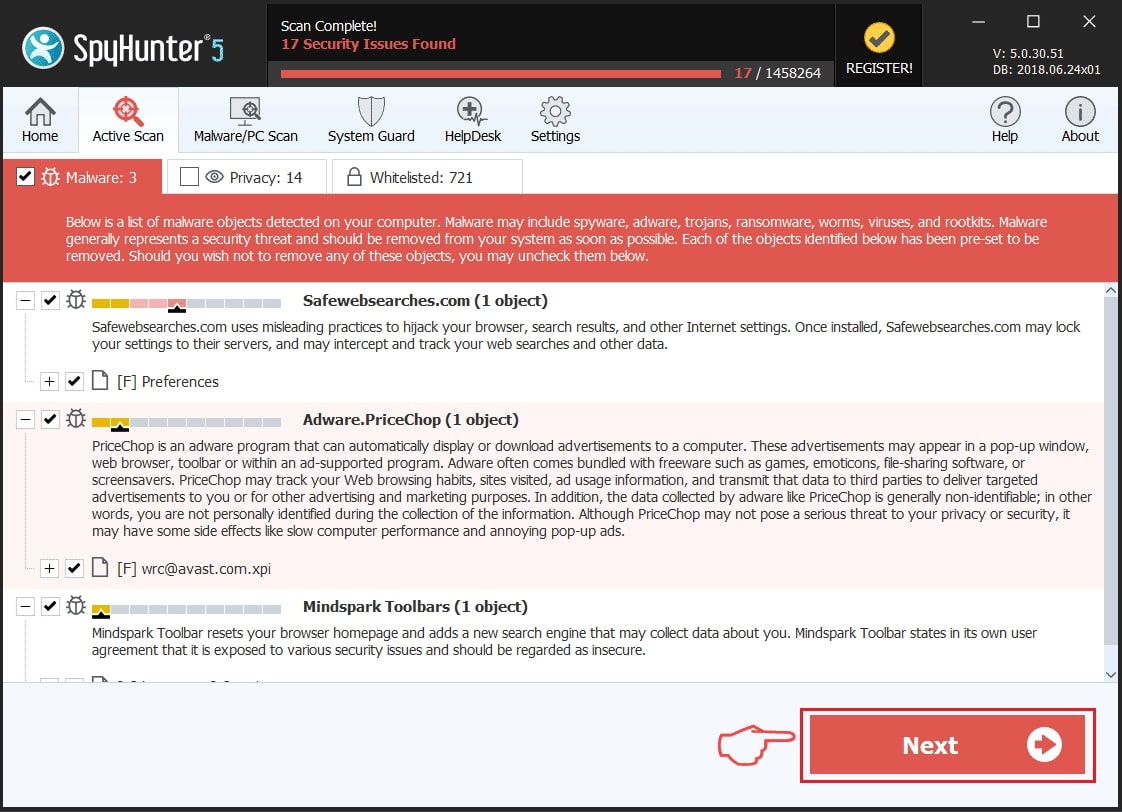
Step 2: Clean any registries, created by VirTool:Win32/Obfuscator.XX on your computer.
The usually targeted registries of Windows machines are the following:
- HKEY_LOCAL_MACHINE\Software\Microsoft\Windows\CurrentVersion\Run
- HKEY_CURRENT_USER\Software\Microsoft\Windows\CurrentVersion\Run
- HKEY_LOCAL_MACHINE\Software\Microsoft\Windows\CurrentVersion\RunOnce
- HKEY_CURRENT_USER\Software\Microsoft\Windows\CurrentVersion\RunOnce
You can access them by opening the Windows registry editor and deleting any values, created by VirTool:Win32/Obfuscator.XX there. This can happen by following the steps underneath:
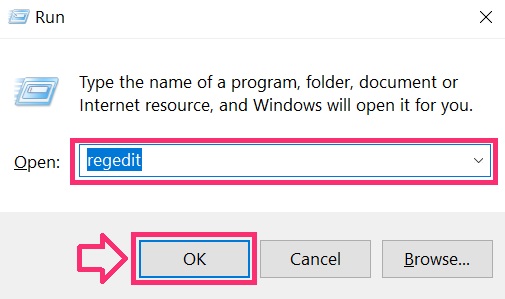

 Tip: To find a virus-created value, you can right-click on it and click "Modify" to see which file it is set to run. If this is the virus file location, remove the value.
Tip: To find a virus-created value, you can right-click on it and click "Modify" to see which file it is set to run. If this is the virus file location, remove the value.Step 3: Find virus files created by VirTool:Win32/Obfuscator.XX on your PC.
1.For Windows 8, 8.1 and 10.
For Newer Windows Operating Systems
1: On your keyboard press + R and write explorer.exe in the Run text box and then click on the Ok button.

2: Click on your PC from the quick access bar. This is usually an icon with a monitor and its name is either “My Computer”, “My PC” or “This PC” or whatever you have named it.
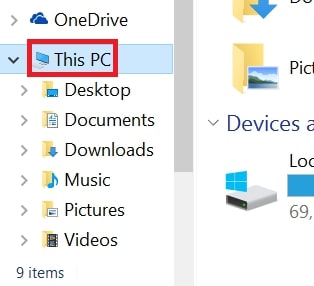
3: Navigate to the search box in the top-right of your PC's screen and type “fileextension:” and after which type the file extension. If you are looking for malicious executables, an example may be "fileextension:exe". After doing that, leave a space and type the file name you believe the malware has created. Here is how it may appear if your file has been found:
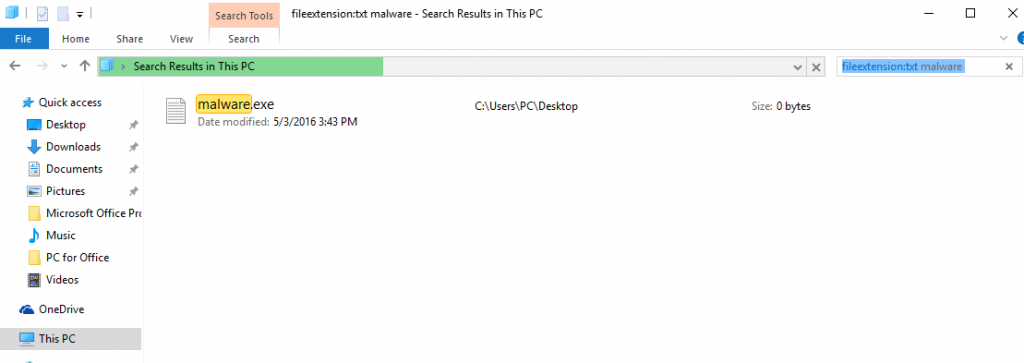
N.B. We recommend to wait for the green loading bar in the navigation box to fill up in case the PC is looking for the file and hasn't found it yet.
2.For Windows XP, Vista, and 7.
For Older Windows Operating Systems
In older Windows OS's the conventional approach should be the effective one:
1: Click on the Start Menu icon (usually on your bottom-left) and then choose the Search preference.
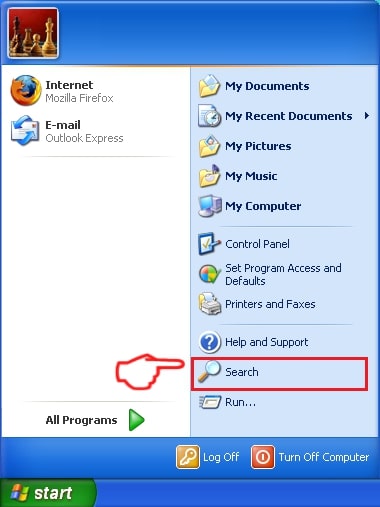
2: After the search window appears, choose More Advanced Options from the search assistant box. Another way is by clicking on All Files and Folders.

3: After that type the name of the file you are looking for and click on the Search button. This might take some time after which results will appear. If you have found the malicious file, you may copy or open its location by right-clicking on it.
Now you should be able to discover any file on Windows as long as it is on your hard drive and is not concealed via special software.
VirTool:Win32/Obfuscator.XX FAQ
What Does VirTool:Win32/Obfuscator.XX Trojan Do?
The VirTool:Win32/Obfuscator.XX Trojan is a malicious computer program designed to disrupt, damage, or gain unauthorized access to a computer system. It can be used to steal sensitive data, gain control over a system, or launch other malicious activities.
Can Trojans Steal Passwords?
Yes, Trojans, like VirTool:Win32/Obfuscator.XX, can steal passwords. These malicious programs are designed to gain access to a user's computer, spy on victims and steal sensitive information such as banking details and passwords.
Can VirTool:Win32/Obfuscator.XX Trojan Hide Itself?
Yes, it can. A Trojan can use various techniques to mask itself, including rootkits, encryption, and obfuscation, to hide from security scanners and evade detection.
Can a Trojan be Removed by Factory Reset?
Yes, a Trojan can be removed by factory resetting your device. This is because it will restore the device to its original state, eliminating any malicious software that may have been installed. Bear in mind that there are more sophisticated Trojans that leave backdoors and reinfect even after a factory reset.
Can VirTool:Win32/Obfuscator.XX Trojan Infect WiFi?
Yes, it is possible for a Trojan to infect WiFi networks. When a user connects to the infected network, the Trojan can spread to other connected devices and can access sensitive information on the network.
Can Trojans Be Deleted?
Yes, Trojans can be deleted. This is typically done by running a powerful anti-virus or anti-malware program that is designed to detect and remove malicious files. In some cases, manual deletion of the Trojan may also be necessary.
Can Trojans Steal Files?
Yes, Trojans can steal files if they are installed on a computer. This is done by allowing the malware author or user to gain access to the computer and then steal the files stored on it.
Which Anti-Malware Can Remove Trojans?
Anti-malware programs such as SpyHunter are capable of scanning for and removing Trojans from your computer. It is important to keep your anti-malware up to date and regularly scan your system for any malicious software.
Can Trojans Infect USB?
Yes, Trojans can infect USB devices. USB Trojans typically spread through malicious files downloaded from the internet or shared via email, allowing the hacker to gain access to a user's confidential data.
About the VirTool:Win32/Obfuscator.XX Research
The content we publish on SensorsTechForum.com, this VirTool:Win32/Obfuscator.XX how-to removal guide included, is the outcome of extensive research, hard work and our team’s devotion to help you remove the specific trojan problem.
How did we conduct the research on VirTool:Win32/Obfuscator.XX?
Please note that our research is based on an independent investigation. We are in contact with independent security researchers, thanks to which we receive daily updates on the latest malware definitions, including the various types of trojans (backdoor, downloader, infostealer, ransom, etc.)
Furthermore, the research behind the VirTool:Win32/Obfuscator.XX threat is backed with VirusTotal.
To better understand the threat posed by trojans, please refer to the following articles which provide knowledgeable details.


